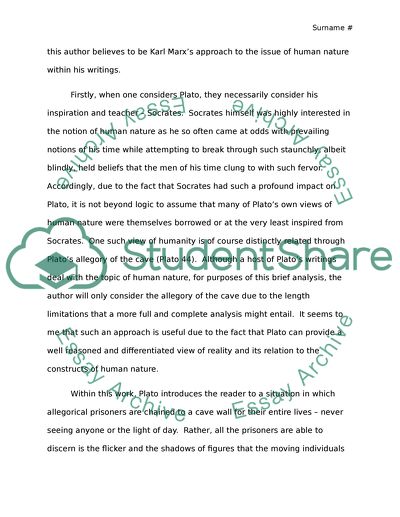Cite this document
(“Compare between Plato and Karl marx on the topic of human nature Essay”, n.d.)
Compare between Plato and Karl marx on the topic of human nature Essay. Retrieved from https://studentshare.org/philosophy/1461726-compare-between-plato-and-karl-marx-on-the-topic
Compare between Plato and Karl marx on the topic of human nature Essay. Retrieved from https://studentshare.org/philosophy/1461726-compare-between-plato-and-karl-marx-on-the-topic
(Compare Between Plato and Karl Marx on the Topic of Human Nature Essay)
Compare Between Plato and Karl Marx on the Topic of Human Nature Essay. https://studentshare.org/philosophy/1461726-compare-between-plato-and-karl-marx-on-the-topic.
Compare Between Plato and Karl Marx on the Topic of Human Nature Essay. https://studentshare.org/philosophy/1461726-compare-between-plato-and-karl-marx-on-the-topic.
“Compare Between Plato and Karl Marx on the Topic of Human Nature Essay”, n.d. https://studentshare.org/philosophy/1461726-compare-between-plato-and-karl-marx-on-the-topic.


